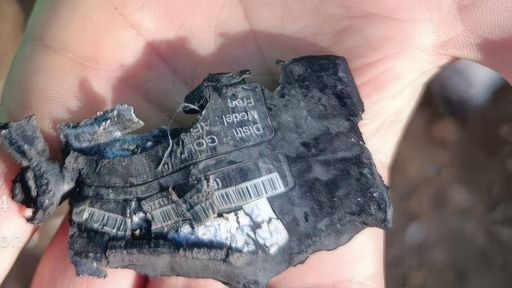It was quickly suspected that Israel might be behind the presumably long-planned and prepared complex attack. The operation is considered one of the most technologically advanced maneuvers in recent years. Israel has not claimed responsibility for the attack, but the method of simultaneous detonation and pinpoint accuracy suggests a well-planned military operation.
The Pager Bombing - a spectacular operation by the Israeli Secret Service
On 18th and 19th September 2024, hundreds of pagers and radios used by Hezbollah members in Lebanon exploded almost simultaneously.

Possible Motives for the Attack
The trail leads to a small PO Box in Budapest, which officially is the address of a company named BAC Consulting - a trade broker without its own production site. According to Gold Apollo, whose brand is emblazoned on the exploding devices, BAC Consulting manufactured the pagers. The nondescript address now raises suspicions of involvement in one of the most daring "supply chain" operations in espionage history.
Regarding the motives for the attack, there are diverse theories. Some analysts suspect that Israel feared its successful infiltration of Hezbollah's communication network had been discovered. Therefore, a decision was made to detonate the pagers all at once in order to secure vital information and prevent Hezbollah from using this network. Others speculate that the attack might have been part of a broader Israeli strategy gearing up for an impending ground offensive in the south of Lebanon. Furthermore, analysts believe these Israeli operations may aim to weaken Hezbollah's military power in order to prevent any escalation.
The number of civilian casualties is alarmingly high: at least 30 people, including two children, lost their lives in the explosions, and another 3,000 people were injured. UN Human Rights Chief Volker Turk condemned the civilian casualties as unacceptable and called for an independent investigation. While some in Israel see the attacks as a necessary preventive measure, others warn of the potentially unpredictable implications of a new war. Retaliatory actions from Hezbollah and Iran are expected, which could further exacerbate the already tense political and military situation.
What does the attack mean for Hezbollah
This action represents a significant setback for Hezbollah, as Israel not only had access to their internal communication system, but was also able to use this for its own purposes and ultimately disable it. This demonstrates Israel's technical and strategic supremacy in one of the most delicate conflict areas of the Middle East. At the same time, the attack increases the risk of retaliation by Hezbollah. The attack is an absolute disaster for Hezbollah, which even before the attack was hardly able to communicate without being intercepted - now communication may not be possible at all in some areas.
Potential Consequences of the Attack
Given the close ties between Hezbollah and Iran, there is growing concern that the conflict may escalate further, potentially leading to a broader military engagement in the region.
International reactions are mixed: US and European officials admire the precision of the operation but express concerns about a possible escalation of the conflict. In Israel, the military state of alert remains high.
The repercussions of this operation could be far-reaching, impacting both regional stability and international relations. The fear of a war between Iran and Israel through the proxy states of Lebanon, Syria, and Iraq has been reignited by the Pager attack. The UN warns that the war could evolve into an international conflict in the region. What is certain is that Hezbollah will not take this humiliation without seeking revenge.




